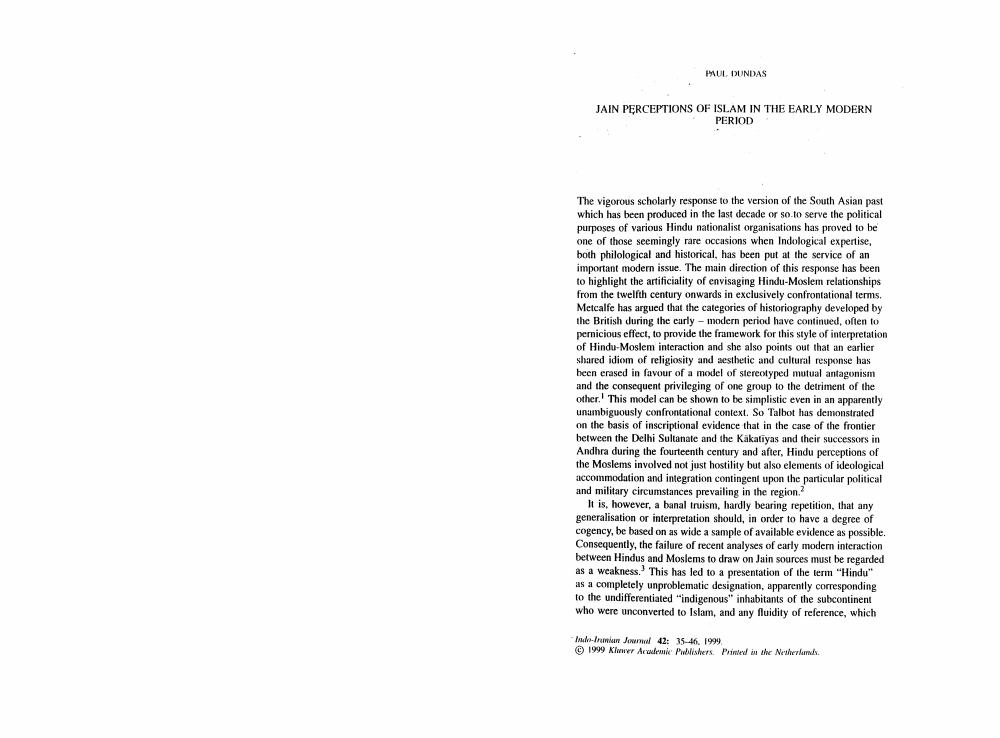________________
MUL PUNDAS
JAIN PERCEPTIONS OF ISLAM IN THE EARLY MODERN
PERIOD
The vigorous scholarly response to the version of the South Asian past which has been produced in the last decade or so. to serve the political purposes of various Hindu nationalist organisations has proved to be one of those seemingly rare occasions when Indological expertise, both philological and historical, has been put at the service of an important modern issue. The main direction of this response has been to highlight the artificiality of envisaging Hindu-Moslem relationships from the twelfth century onwards in exclusively confrontational terms. Metcalfe has argued that the categories of historiography developed by the British during the curly - modern period have continued, often to pernicious effect, to provide the framework for this style of interpretation of Hindu-Moslem interaction and she also points out that an earlier shared idiom of religiosity and aesthetic and cultural response has heen erased in favour of a model of stereotyped mutual antagonism and the consequent privileging of one group to the detriment of the other. This model can be shown to be simplistic even in an apparently unambiguously confrontational context. So Talbot has demonstrated on the basis of inscriptional evidence that in the case of the frontier between the Delhi Sultanate and the Kakatiyas and their successors in Andhra during the fourteenth century and after, Hindu perceptions of the Moslems involved not just hostility but also elements of ideological accommodation and integration contingent upon the particular political and military circumstances prevailing in the region.
It is, however, a banaltruism, hardly bearing repetition, that any generalisation or interpretation should, in order to have a degree of cogency, be based on as wide a sample of available evidence as possible. Consequently, the failure of recent analyses of early modem interaction between Hindus and Moslems to draw on Jain sources must be regarded as a weakness. This has led to a presentation of the term "Hindu" as a completely unproblematic designation, apparently corresponding to the undifferentiated "indigenous" inhabitants of the subcontinent who were unconverted to Islam, and any fluidity of reference, which
Indo-Irumur Juw 42: 15-46. 1999 © 1999 k r Arwel wishers. Per in the Netherlands




